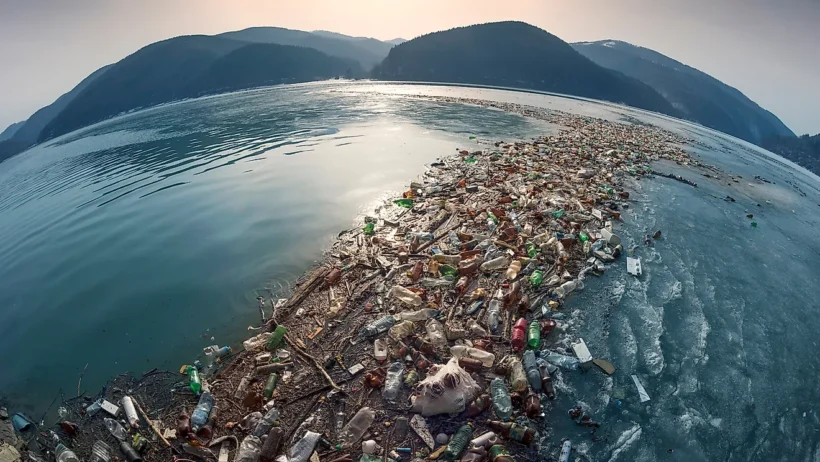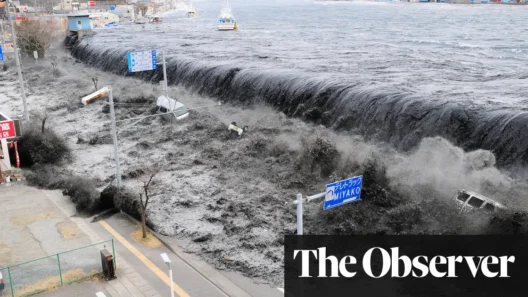The oceans, which cover more than 70% of our planet’s surface, are facing a dual crisis—plastic pollution and rising temperatures. These intertwined issues not only threaten marine biodiversity but also have profound implications for global climate patterns. The phrase “plastic oceans” often conjures an image of floating debris, but the ramifications of this environmental crisis extend far beyond unsightly trash. It is a clarion call to rethink the way we perceive our oceans and their role in the Earth’s climate system.
As plastic waste accumulates, it interacts with various physical and chemical processes in the marine environment, a phenomenon that contributes to the warming of our seas. The relationship between plastic and temperature is a complex tapestry woven from various threads: the properties of plastics, their interaction with sunlight, and the impact on marine organisms all influence how our oceans respond to climate change.
Plastic is not just inert waste; it has properties that change the way heat is absorbed in the ocean. When plastics accumulate on the surface of the water, they create a barrier, inhibiting heat exchange between the ocean and the atmosphere. This uptake of heat contributes to localized warming, leading to phenomena such as algal blooms which further complicate existing ecological dynamics.
The global plastic production has skyrocketed in recent decades, with estimates indicating that over 300 million tons of plastic are produced annually. This staggering amount translates to a veritable deluge of waste overwhelming marine ecosystems. A significant portion of this plastic ends up in the ocean, where it can remain for centuries, slowly breaking down into microplastics. This degradation not only signifies a painful irony—what was once a product of human ingenuity becoming a burden for life forms in the ocean—but also a perilous situation that exacerbates the effects of climate change.
As ocean temperatures rise, they create a ripple effect throughout marine ecosystems. Coral reefs, which serve as vital habitats for countless marine species, are exceptionally sensitive to temperature fluctuations. The phenomenon known as coral bleaching occurs when stressed corals expel the algae living in their tissues, leading to a stark white appearance and, subsequently, potential death. This ecological crisis is exacerbated by the presence of plastic debris, which can smother corals and introduce harmful contaminants into delicate reef systems.
Fish populations are significantly affected by warming waters, which disrupt breeding and migratory patterns. Species that are unable to adapt to rapid temperature changes risk population collapse. Furthermore, plastics frequently break apart into chemical leachates that bioaccumulate in marine organisms, introducing toxic substances into the food web. The ecological repercussions extend to human health as well, as the ingestion of contaminated seafood leads to questions of food security and safety.
The interaction between plastic pollution and ocean warming reveals an alarming trend that calls for immediate action. A shift in perspective is essential. Addressing the dual crises of plastic pollution and climate change necessitates comprehensive policy changes and innovative approaches. Solutions could include enhancing waste management systems, advocating for reduction in plastic production, and promoting biodegradable materials. International cooperation and local grassroots efforts can forge pathways toward sustainable practices that preserve marine ecosystems.
Moreover, awareness and education play crucial roles in this battle. Informing the public about the interplay between plastic and ocean temperatures can mobilize individuals to be more conscientious about their consumption habits. Citizen science initiatives can foster community involvement, encouraging local populations to monitor marine health and engage in conservation efforts.
Technological advancements also hold promise in mitigating the issues posed by plastic and temperature changes in the ocean. Research into microbial digesters and technological innovations designed to intercept plastic waste before it reaches the ocean can provide tangible solutions. Moreover, restoration projects aimed at rehabilitating coral reefs and other vital ecosystems can promote resilience against climate perturbations, symbolic of hope in this critical juncture.
To truly navigate the complexities of “plastic oceans,” a multifaceted approach is required. It encompasses not only scientific and technological strategies but also inspires an ethical overhaul in our relationship with nature and resources. A concerted effort driven by collective responsibility can transform the narrative from one of despair to one of hope, rekindling our connection with the marine environment and understanding the integral role it plays in global climate stability.
Ultimately, mitigating the tragedies of plastic pollution and ocean warming is not just an environmental issue; it is a matter of moral imperative, echoing a responsibility towards future generations. The time is now to initiate transformative changes in policies, advocate for innovative solutions, and foster a culture of awareness. Transitioning from an anthropocentric mindset to one that respects the intricate web of life fosters harmony, helping to ensure that the oceans not only survive but thrive in a warming world.




